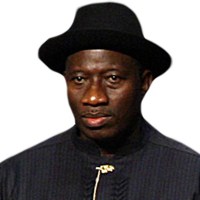Nigeria could be a dominant political force and engine for economic development in Africa and beyond. It has a large population with a highly educated professional class. Its proven petroleum reserves are the world's 10th largest. And its military is one of the largest in sub-Saharan Africa, with extensive experience in multinational peacekeeping.
Unfortunately, though, Nigeria's problems run as deep as its potential. It has suffered some of the most rapacious and persistent government corruption in the world. Nigerian leaders, both military and civilian, have stolen untold billions while the nation sinks deeper into poverty. Many Nigerians use their impressive entrepreneurial skill for crime rather than national development. Nigeria's ethnic and religious complexity often paralyzes the political process and makes it a spoils system for whatever group dominates the state. Its borders, like most in Africa, are porous and artificial, a legacy of colonialism rather than a reflection of cultural or social realities. And like much of Africa, the majority of Nigerians are young, many of them frustrated and angered by the lack of educational and economic opportunity
Unsurprisingly, Nigeria faces widespread internal violence. Ethnic, religious and sectarian militias and criminal gangs are common. If that is not enough, there are also organized insurgencies, most importantly the Movement for the Emancipation of the Niger Delta (MEND), the largest militant group in the crushingly impoverished Niger Delta, and Boko Haram, a jihadist militant organization seeking to create an Islamist state in Nigeria's northeast. Until recently MEND received more attention both from the Nigerian government and the international community, largely because it operates in the major oil-producing part of the country. But over the past few years, Boko Haram, with its expanding violence and jihadist ideology, has moved to the forefront.

